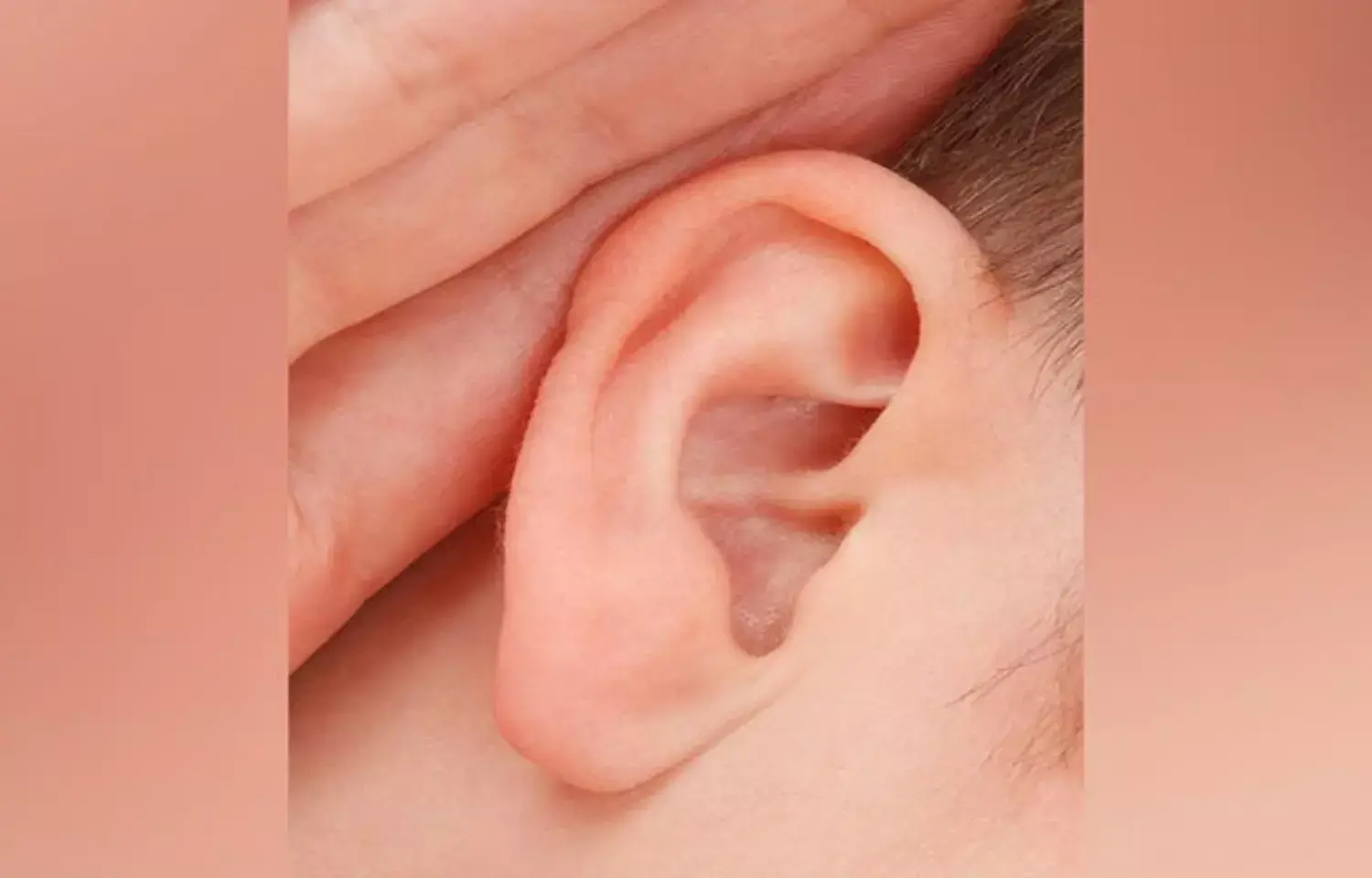- Home
- Medical news & Guidelines
- Anesthesiology
- Cardiology and CTVS
- Critical Care
- Dentistry
- Dermatology
- Diabetes and Endocrinology
- ENT
- Gastroenterology
- Medicine
- Nephrology
- Neurology
- Obstretics-Gynaecology
- Oncology
- Ophthalmology
- Orthopaedics
- Pediatrics-Neonatology
- Psychiatry
- Pulmonology
- Radiology
- Surgery
- Urology
- Laboratory Medicine
- Diet
- Nursing
- Paramedical
- Physiotherapy
- Health news
- Fact Check
- Bone Health Fact Check
- Brain Health Fact Check
- Cancer Related Fact Check
- Child Care Fact Check
- Dental and oral health fact check
- Diabetes and metabolic health fact check
- Diet and Nutrition Fact Check
- Eye and ENT Care Fact Check
- Fitness fact check
- Gut health fact check
- Heart health fact check
- Kidney health fact check
- Medical education fact check
- Men's health fact check
- Respiratory fact check
- Skin and hair care fact check
- Vaccine and Immunization fact check
- Women's health fact check
- AYUSH
- State News
- Andaman and Nicobar Islands
- Andhra Pradesh
- Arunachal Pradesh
- Assam
- Bihar
- Chandigarh
- Chattisgarh
- Dadra and Nagar Haveli
- Daman and Diu
- Delhi
- Goa
- Gujarat
- Haryana
- Himachal Pradesh
- Jammu & Kashmir
- Jharkhand
- Karnataka
- Kerala
- Ladakh
- Lakshadweep
- Madhya Pradesh
- Maharashtra
- Manipur
- Meghalaya
- Mizoram
- Nagaland
- Odisha
- Puducherry
- Punjab
- Rajasthan
- Sikkim
- Tamil Nadu
- Telangana
- Tripura
- Uttar Pradesh
- Uttrakhand
- West Bengal
- Medical Education
- Industry
Scientists develop new gene therapy for deafness

A new study from Tel Aviv University (TAU) presents an innovative treatment for deafness, based on the delivery of genetic material into the cells of the inner ear. The genetic material "replaces" the genetic defect and enables the cells to continue functioning normally.
The scientists were able to prevent the gradual deterioration of hearing in mice that had a genetic mutation for deafness. They maintain that this novel therapy could lead to a breakthrough in treating children born with various mutations that eventually cause deafness.
The study was led by Professor Karen Avraham of the Department of Human Molecular Genetics and Biochemistry at TAU's Sackler Faculty of Medicine and Sagol School of Neuroscience. The paper was published in EMBO Molecular Medicine on December 22, 2020.
Deafness is the most common sensory disability worldwide. According to the World Health Organization, there are about half a billion people with hearing loss around the world today, and this figure is expected to double in the coming decades. One in every 200 children is born with a hearing impairment, and one in every 1,000 is born deaf. In about half of these cases, deafness is caused by a genetic mutation. There are currently about 100 different genes associated with hereditary deafness.
"In this study we focused on genetic deafness caused by a mutation in the gene SYNE4 - a rare deafness discovered by our lab several years ago in two Israeli families, and since then identified in Turkey and the UK as well," Professor Avraham reports. "Children inheriting the defective gene from both parents are born with normal hearing, but they gradually lose their hearing during childhood. The mutation causes mislocalization of cell nuclei in the hair cells inside the cochlea of the inner ear, which serve as soundwave receptors and are essential for hearing. This defect leads to the degeneration and eventual death of hair cells."
"We implemented an innovative gene therapy technology: we created a harmless synthetic virus and used it to deliver genetic material - a normal version of the gene that is defective in both the mouse model and the affected human families," says Shahar Taiber, one of Professor Avraham's students on the combined MD-PhD track. "We injected the virus into the inner ear of the mice, so that it entered the hair cells and released its genetic payload. By so doing, we repaired the defect in the hair cells and enabled them to mature and function normally."
The treatment was administered soon after birth and the mice's hearing was then monitored using both physiological and behavioral tests. "The findings are most promising," says Professor Jeffrey Holt from Boston Children's Hospital and Harvard Medical School, a collaborator on the study. "Treated mice developed normal hearing, with sensitivity almost identical to that of healthy mice who do not have the mutation."
The scientists are now developing similar therapies for other mutations that cause deafness.
"This is an important study that shows that inner ear gene therapy can be effectively applied to a mouse model of SYNE4 deafness to rescue hearing," says Prof. Wade Chien, MD, from the NIDCD/NIH Inner Ear Gene Therapy Program and Johns Hopkins School of Medicine, who was not involved in the study. "The magnitude of hearing recovery is impressive. This study is a part of a growing body of literature showing that gene therapy can be successfully applied to mouse models of hereditary hearing loss, and it illustrates the enormous potential of gene therapy as a treatment for deafness.
https://www.embopress.org/doi/full/10.15252/emmm.202013259
Hina Zahid Joined Medical Dialogue in 2017 with a passion to work as a Reporter. She coordinates with various national and international journals and association and covers all the stories related to Medical guidelines, Medical Journals, rare medical surgeries as well as all the updates in the medical field. Email: editorial@medicaldialogues.in. Contact no. 011-43720751
Dr Kamal Kant Kohli-MBBS, DTCD- a chest specialist with more than 30 years of practice and a flair for writing clinical articles, Dr Kamal Kant Kohli joined Medical Dialogues as a Chief Editor of Medical News. Besides writing articles, as an editor, he proofreads and verifies all the medical content published on Medical Dialogues including those coming from journals, studies,medical conferences,guidelines etc. Email: drkohli@medicaldialogues.in. Contact no. 011-43720751


